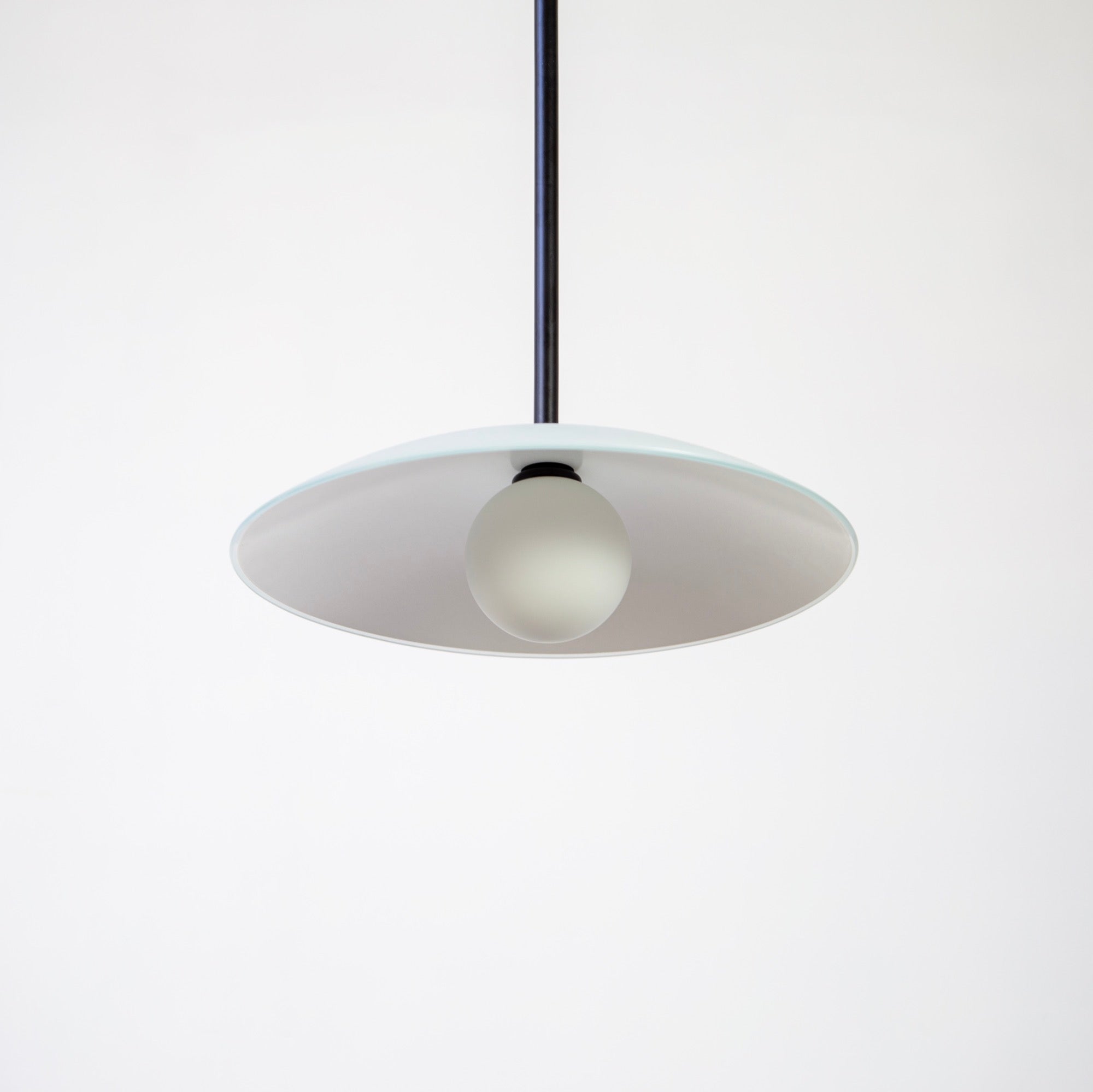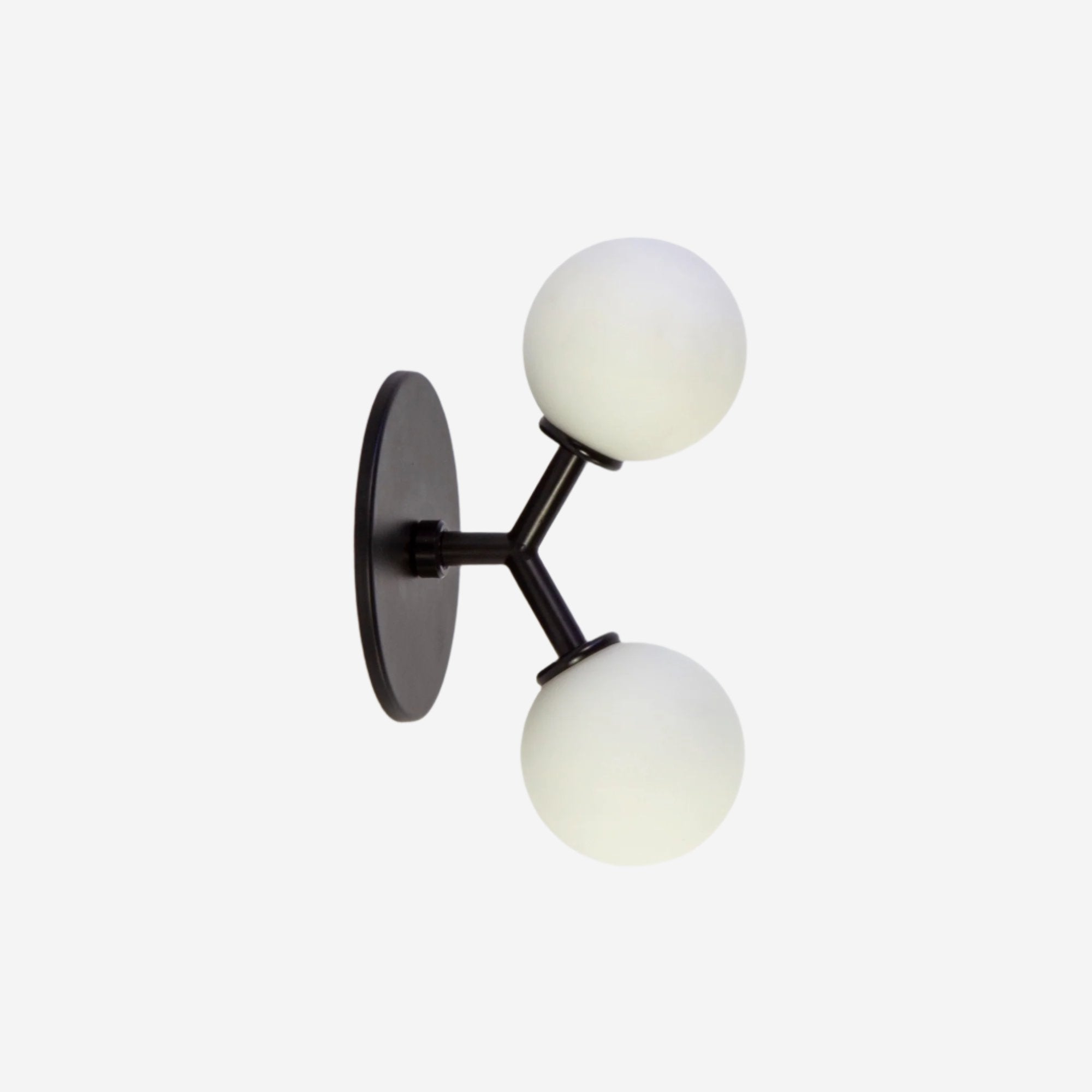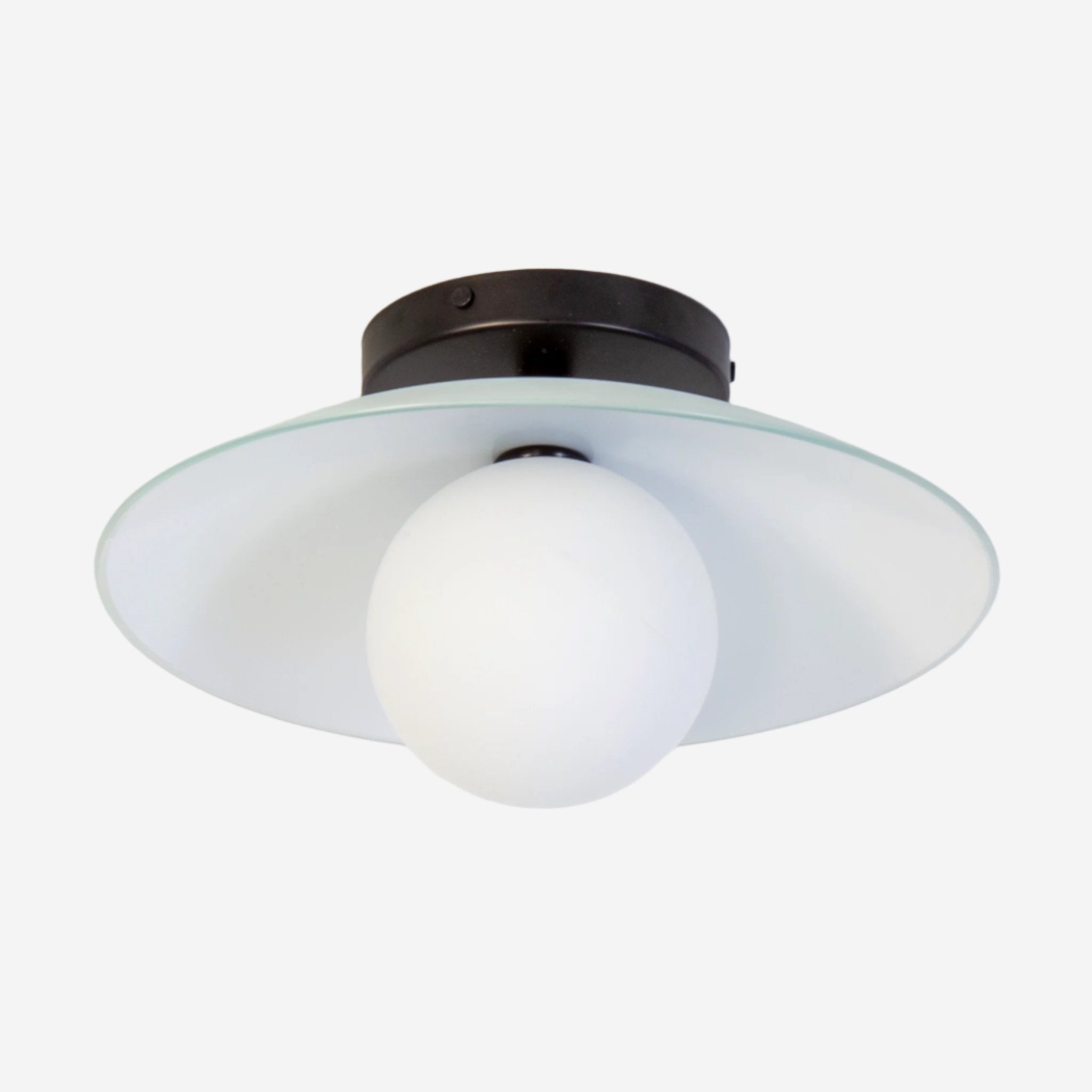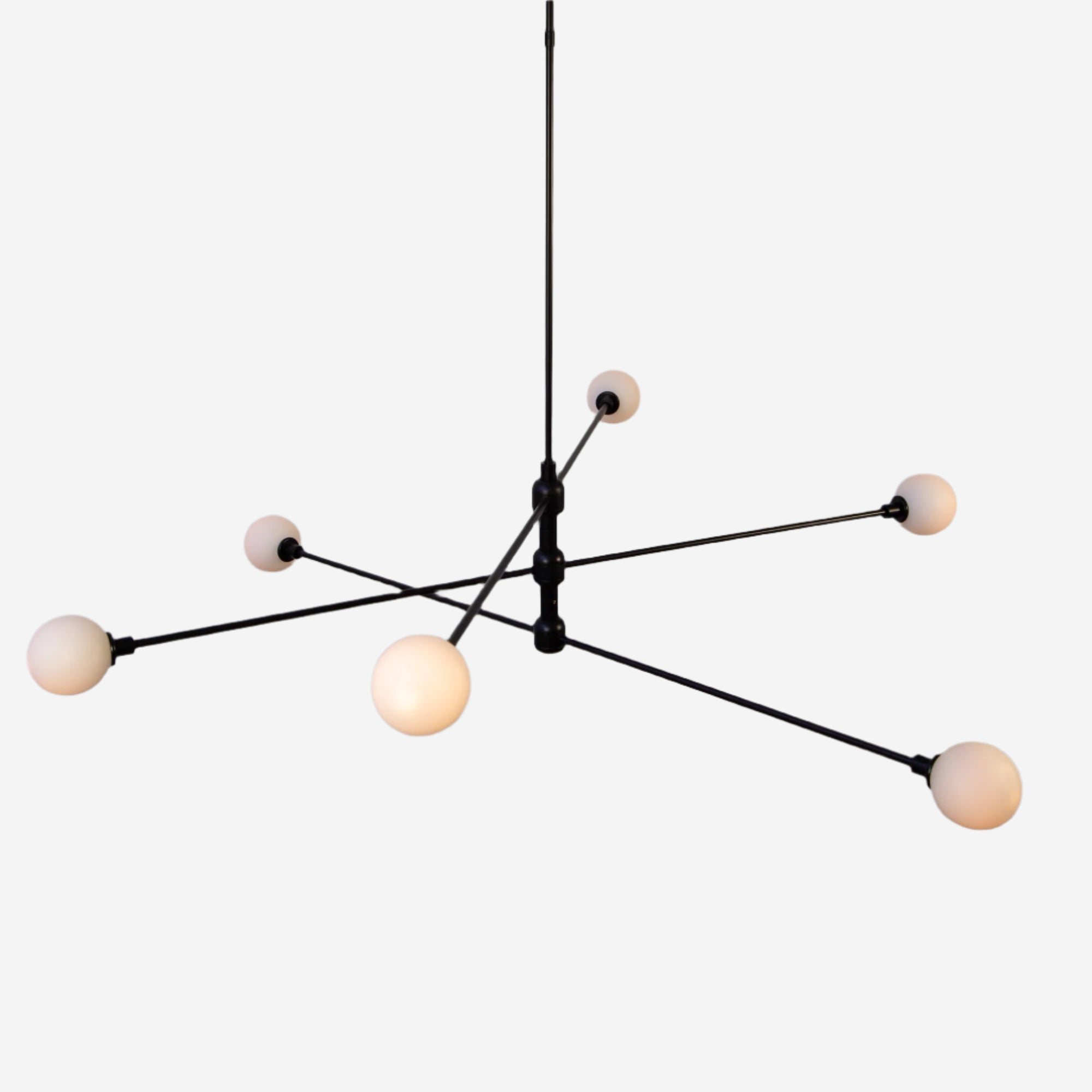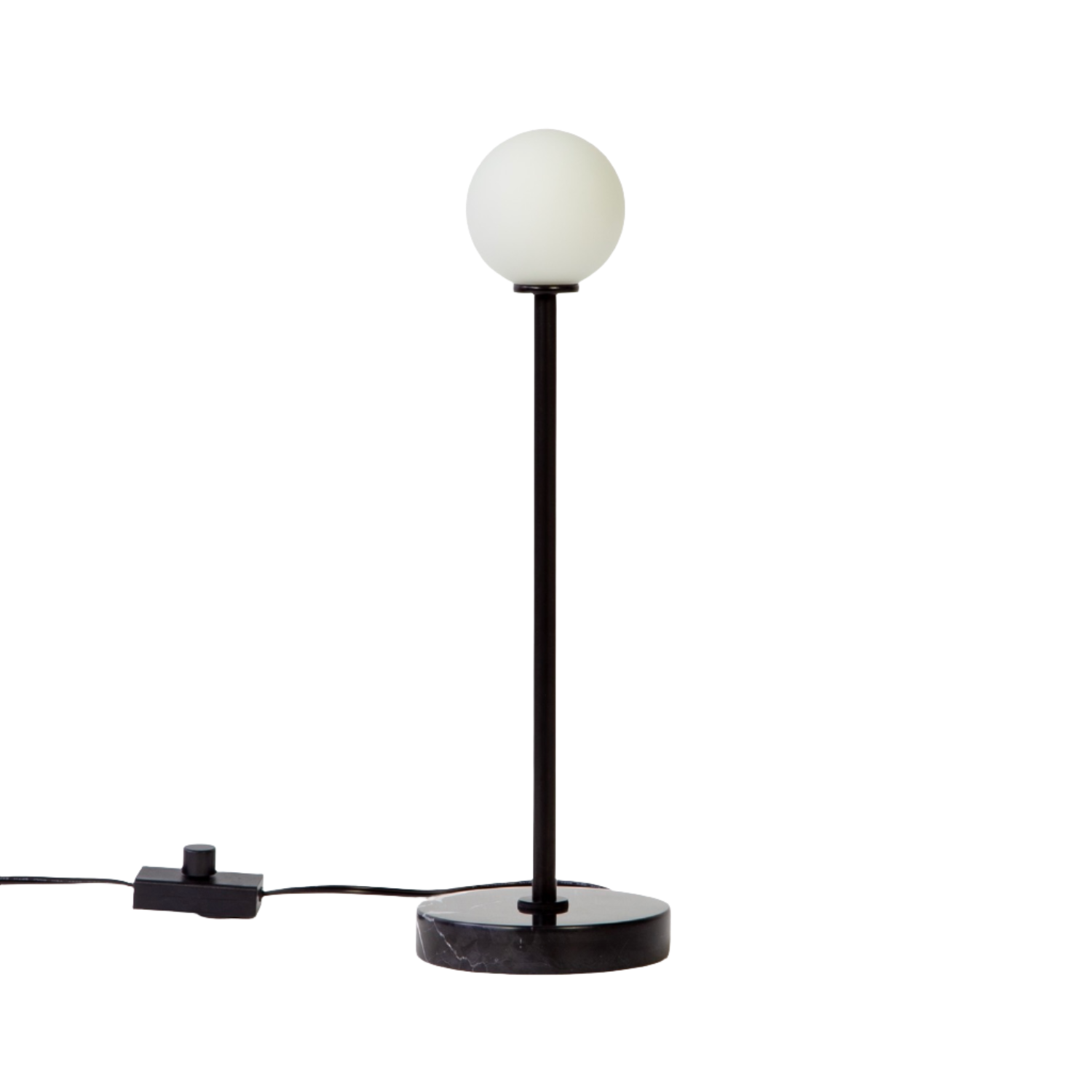
Lumens to Watts Conversion Chart & Brightness Comparison
For decades, people judged light bulbs by watts. A 40-watt bulb felt nice and dim, a 100-watt bulb felt bright. Simple enough. But watts only measure energy use, not brightness. With efficient bulbs like LEDs, the old connection between watts and brightness no longer works.
That is why lumens are more useful (and accurate). Lumens measure light output, or how bright a bulb actually is. Higher lumens mean more visible light, no matter how many watts the bulb uses.
With lumens (sometimes shortened to "lm.") provide a more straightforward way to measure light output, many manufacturers now list brightness in lumens rather than watts. In some regions, such as the EU, showing luminous output of light fixtures & bulbs in lumens has become a legal requirement.

Hive Sconce in Polished Nickel
Lumens vs Watts
-
Lumens = brightness
-
Watts = power consumed
Incandescent bulbs linked the two because more watts usually meant more lumens. A 60-watt incandescent, for example, often produced somewhere between 700 and 850 lumens. People got used to using watts as shorthand. With LEDs, that same brightness might only require 8–10 watts.
Lumens-to-Watts Conversion
Here is a simple chart showing typical comparisons. These are ranges, since incandescent bulbs varied:
| Lumens (range) | Comparable Incandescent Watts |
|---|---|
| 100 lumens – 150 lumens | 10–15W bulb |
| 200 lumens – 250 lumens | 25W bulb |
| 300 lumens – 400 lumens | 30–35W bulb |
| 400 lumens – 500 lumens | 40W bulb |
| 500 lumens – 600 lumens | 45–50W bulb |
| 700 lumens – 850 lumens | 60W bulb |
| 1000 lumens – 1200 lumens | 75W bulb |
| 1300 lumens – 1350 lumens | 90–95W bulb |
| 1500 lumens – 1700 lumens | 100W bulb |
| 1800 lumens – 2000 lumens | 125–150W bulb |
| 2200 lumens – 2400 lumens | 175W bulb |
| 2500 lumens – 3000 lumens | 200W bulb |
Brightness in Context
Numbers are helpful, but they don’t tell the whole story.
-
100 lumens – 300 lumens: ~200 lumens feels like a quiet glow. Think night lights, accent sconces, or soft hallway markers.
-
350 lumens – 500 lumens works for a small accent sconce or hallway light. Fixtures around 400 lumens - 450 lumens are ideal when used in multiples or layered with other light sources.
-
600 lumens – 700 lumens; ~650 lumens suits bedside reading or a hallway pendant with a frosted globe. Just enough to feel lit, not overdone.
-
700 lumens – 850 lumens: ~750 lumens is close to a standard bedroom light or living room lamp.
-
1000 lumens - 1200 lumens: ~1100 lumens delivers stronger task lighting, often used for lighting kitchens, reading areas, or work zones that need clarity without glare.
-
1300 lumens – 1400 lumens feels right for overhead fixtures in mid-size rooms. A good fit for a single pendant or flush mount.
-
1500 lumens – 1700 lumens: ~1600 lumens is bright enough for larger rooms or primary overhead fixtures. Think chandeliers or linear pendant lights.
-
1800 lumens – 2000 lumens works for open layouts, tall ceilings, or oversized rooms where smaller fixtures get visually lost.
-
2200 lumens – 3000 lumens is architectural territory. These outputs show up in multi-globe fixtures, tall floor lamps, or statement lighting built to carry more of the room.
Design also affects perception. A frosted shade spreads 800 lumens into a soft ambient glow, while a clear bulb feels sharper. Placement matters too. The same bulb overhead may feel gentler than it does on a wall or beside a bed - particularly if your ceiling is a little higher and the light has more room to spread.
Generally speaking, it's preferable to have multiple light sources in each room rather than one or two brighter fixtures. If anything, aim for a bit more light than you think you might need, but invest in some dimming switches. A 1600-lumen pendant, for example, doesn’t always need full power. It's nice to have the ability to dim things down, especially once it's darker outside.
Additional Resources
It can take some time to get used to using lumens for those that are more acquainted with watts. So we've been building out some additional guides for more specific outputs - or those that don't perfectly align with the outputs of incandescent bulbs. Check out our guide on how bright is 250 lumens vs watts or how 900 lumens compares to watts. or reach out to us if you have questions on another fixture's luminous output and how it compares to watts.
The tldr
Watts no longer tell the full story. Lumens are the clearest way to compare brightness, and this chart offers a quick reference. Use it as a guide, but let the room and light fixture dictate how much light really feels right.

